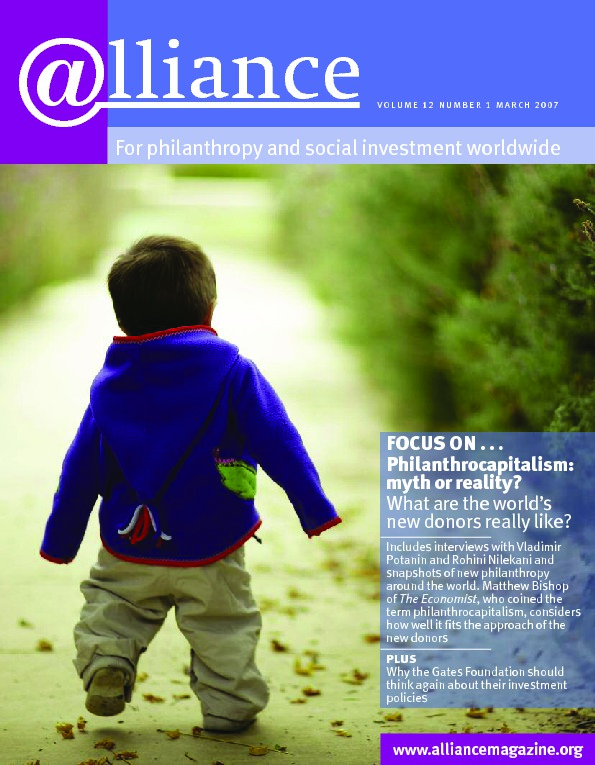Thanks to Chet Tchozewski for his plea for more trust in our own judgment as funders and in the groups we support (‘Intuition, trust and a great river of money,’ Alliance, December 2006). As he suggests, the inordinate amounts of time, expense and mental contortions that many grant applications and reporting requirements impose on grantees do little to ensure that the best organizations are chosen or that desired results ensue. The opportunity cost involved in this process is too extravagant, and the outcomes of the ordeal are too patchy and unreliable.
In generating and channelling support to anti-slavery movements in five countries over the past five years, Free the Slaves has developed an alternative approach that we believe can be widely applied. We have refocused the whole planning and monitoring process on the need for deep and long-term conversations within the global anti-slavery movement.
Our discussions with local and regional organizations begin by asking them what they believe would be the main step towards ending slavery in the context where they are working: quite simply, what is it they have been longing to do? Then we continue to articulate these hopes and strategies together in greater detail. Clearly articulated and shared goals usually emerge from these joint explorations.
The second part of the conversation focuses on asking, ‘What would you hope to see change if what you are doing succeeds?’ This generates some markers or measures that allow us to continue to discuss what is going well, what the obstacles are, and what else to try. Many of these indicators will turn out to be accurate yardsticks of success. But as the project unfolds and after further dialogue, grantees may need to toss other indicators out of the window. If this self-evaluation fails to take place in the first year, it’s a reason for concern, like a fading pulse.
Perhaps it is helpful to see Chet Tchozewski’s strategy of small grants without too much monitoring and bureaucracy as ideal for the very early stages of social and environmental movements. When pioneering organizations are just emerging and trying their first experiments, they need space to make their own mistakes and win their first victories, without foreign funders peering over their shoulders and checking their petty cash records.
But as these movements grow and become more ambitious, they need interested friends, and they need to be involved in an increasingly relevant and incisive dialogue about whether and how their efforts are achieving the hopes they have expressed.
Ginny Baumann
Free the Slaves, Washington DC






Comments (0)